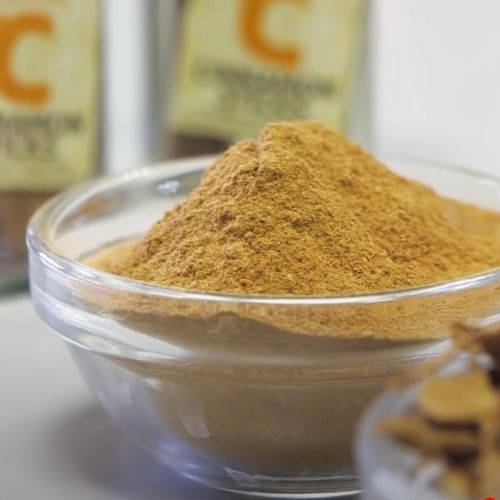Once traded as currency, cinnamon boasts a long history as a spice. It has a warm smell and pleasant flavor that has made it immensely popular in the preparation of curries, sweet bakes and other foods. Extracted from a small evergreen tree, the bark is peeled and left in the sun to dry where it forms rolls called cinnamon sticks or quills. For most people though, the spice is bought in powder form.
While its role as a flavor adding agent is indisputable, questions abound over whether cinnamon may be effective in weight loss. It’s already used in numerous supplements that claim it contributes to weight management in a number of ways. This article uses scientific studies to confirm whether cinnamon can contribute to or accelerate weight loss.
Key points
What is Cinnamon?
Cinnamon is extracted from the inner bark of Cinnamon trees. It has been used for millennia as flavoring, preservative, currency, medication and embalming agent. There are four major types:
Sri Lankan cinnamon
Extracted from the Cinnamomum zeylanicum tree, it is also referred to as true cinnamon. True cinnamon has a lighter hue and more complex, subtle flavor.
Chinese cinnamon
Also referred to as Chinese cinnamon, it is the most widely used cinnamon form in the United States. Extracted from the Cinnamomum cassia tree, it has a dark hue and strong flavor.
Indonesian cinnamon
In Canada, Indonesian cinnamon (from Cinnamomum burmannii tree) is the most common variety.
Vietnamese cinnamon
From the Cinannamomum loureiroi tree, it has a strong and intense flavor.
Cinnamon is available as a health supplement for weight loss. To establish whether it aids weight reduction, let’s take a closer look at the scientific research.
Scientific studies on cinnamon and weight loss
Examining current research, there appears to be a direct link between cinnamon supplementation and weight loss.
Take a clinical trial published in the International Journal of Preventive Medicine in 2012. It found that subjects placed on cinnamon supplementation experienced a reduction in:

This finding is supported by a review of 21 clinical trials. It was published in the Phytotherapy Research journal in 2020. The analysis showed cinnamon supplements were accompanied by reduced BMI and body weight. However, there were no differences between placebo and cinnamon groups in body fat mass and waistline.
A review of seven studies that was published in the Journal of Food Biochemistry
in 2022 established that cinnamon supplementation lowered body weight and BMI but had no effect on waistline. Importantly, the review concluded that impact was greater when cinnamon was taken in doses of 3,000mg per day or more.
In 2020, a review of 12 clinical trials was published in the Clinical Nutrition journal. It established that cinnamon administration lowered body weight, waistline, BMI and fat mass. On fat mass, reduction was more likely to occur with doses of 2,000mg per day or more.
Not all studies point to a direct impact on weight loss. For example, a 2020 review published in the Journal of Ethnopharmacology examined five clinical trials and found no changes in body weight and BMI. That said, there were positive changes to blood sugar levels, insulin sensitivity and cholesterol, all factors known to play an important role in weight regulation.
The mechanism by which cinnamon may cause weight loss is not agreed on. Studies indicate that it just might be its impact on:

A notable shortcoming of cinnamon studies is that they do not always indicate the type of cinnamon used. This is a significant omission as the health benefits of one type of cinnamon may not necessarily be present in the other types.
Safety considerations and recommended dosage
When taken in the amounts that it’s usually found in food, cinnamon is deemed safe.
The ideal dosage for weight loss is anything from 2,000 mg to 6,000 mg per day. Exceeding 6,000 mg, especially if you already take cinnamon as part of your daily meals, increases the risk of adverse effects.
Nevertheless, these side effects are mild and rare. They include:
In persons grappling with liver disease, very high doses of the compound coumarin in Chinese cinnamon can exacerbate liver damage if the supplement is taken for a long time. However, the damage, if it does occur, is usually reversible. Also, most cinnamon supplements and food products do not contain enough quantities of coumarin to cause harm.
For persons on diabetic medication, cinnamon supplementation could cause blood sugar levels to drop lower than they should be. Usage should occur under doctor’s supervision.
Conclusion
Even though the research findings are not unanimous, they mostly make a strong case for cinnamon’s ability to accelerate weight loss. Even where studies do not record a significant reduction in body weight, body fat and BMI, some show a drop in blood sugar, insulin insensitivity and bad cholesterol, all of which are crucial factors in weight management. Side effects are very rare — almost all are mild and reversible. Nevertheless, if you experience any adverse reaction after taking cinnamon supplements, stop and contact your doctor.

